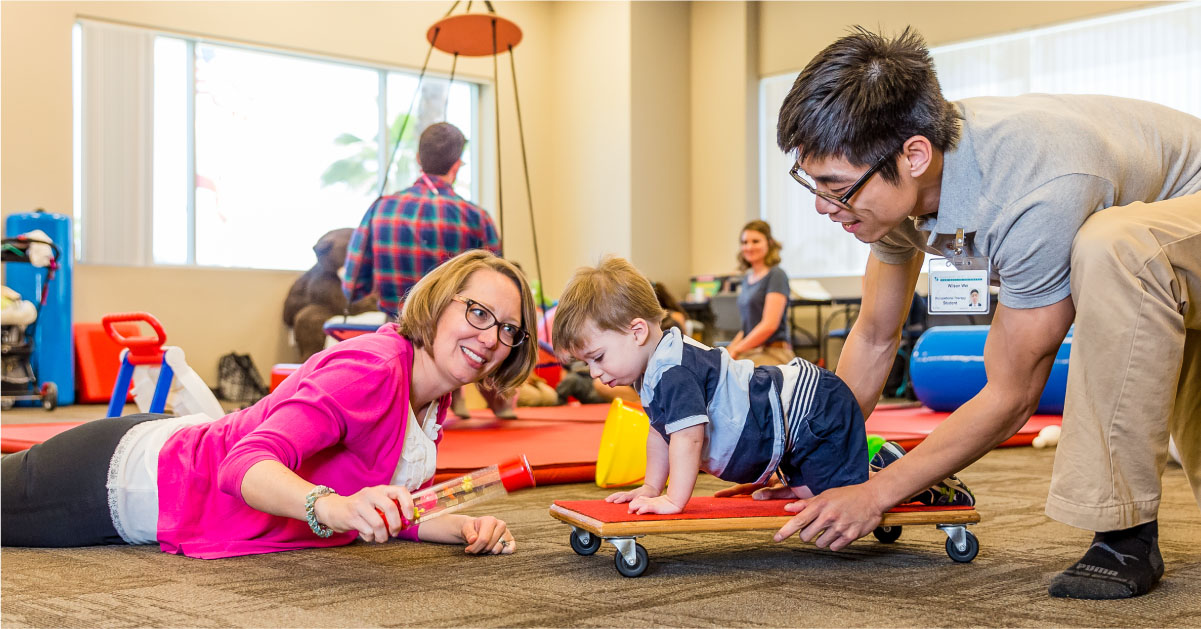Understanding Pediatric Occupational Therapy: A Path to Development
Understanding Pediatric Occupational Therapy: A Path to Development
When children face challenges in performing everyday tasks like dressing, playing, or focusing at school, it can be worrying for parents. These difficulties could be a sign of an underlying developmental delay or disorder. This is where pediatric occupational therapy comes in. It offers targeted support to help children develop the skills they need to navigate daily activities with greater ease and confidence.
Pediatric occupational therapy (OT) is an essential service for children with a variety of physical, sensory, or cognitive challenges. From fine motor skills to social development, OT is designed to foster independence and improve quality of life for children who need additional support. This article will explore what pediatric occupational therapy is, how it benefits children, and what parents can expect from the process.
What is Pediatric Occupational Therapy?
Pediatric occupational therapy is a specialized field of therapy aimed at helping children from infancy to adolescence develop the necessary skills to engage in daily activities, or “occupations.” These can include self-care tasks like dressing, feeding, and hygiene, as well as play, school tasks, and social interactions. OT helps children who have difficulty with one or more of these areas due to physical, developmental, or cognitive challenges.
Occupational therapists work with children to develop motor skills, improve sensory processing, enhance cognitive function, and support emotional and behavioral regulation. The ultimate goal is to enable the child to perform daily tasks independently and feel competent in their abilities.
Why is Pediatric Occupational Therapy Important?
The importance of pediatric occupational therapy cannot be overstated. Early intervention can have a profound impact on a child’s development and overall well-being. Children who face developmental challenges often struggle with everyday tasks, which can affect their self-esteem, relationships with others, and overall quality of life.
Pediatric occupational therapy can assist in addressing a wide variety of conditions, including:
- Sensory Processing Disorder (SPD): Some children may have difficulties processing and responding to sensory stimuli, leading to overreaction or underreaction to sights, sounds, textures, or movements. OT helps children with SPD learn how to regulate their sensory responses.
- Developmental Coordination Disorder (DCD): This disorder affects fine and gross motor skills, making tasks like writing, dressing, and playing sports challenging. Pediatric OT helps children improve their coordination and motor planning skills.
- Autism Spectrum Disorder (ASD): Children on the autism spectrum often have difficulties with communication, social skills, and sensory regulation. Occupational therapy helps children with ASD develop appropriate coping mechanisms, motor skills, and social interactions.
- Attention-Deficit/Hyperactivity Disorder (ADHD): Children with ADHD often struggle with attention, focus, and impulse control. OT can help children develop strategies to improve their concentration and manage their behavior.
By providing a tailored approach to meet each child’s specific needs, pediatric occupational therapy plays a vital role in promoting healthier development and independence.
How Does Pediatric Occupational Therapy Work?
Pediatric occupational therapy begins with a thorough evaluation to assess the child’s needs and challenges. The occupational therapist will observe the child’s abilities in various areas, such as motor skills, sensory responses, and behavior. The therapist will also discuss the child’s history with parents or caregivers to understand their challenges and goals.
Based on the evaluation, a personalized treatment plan is developed to address the child’s specific areas of need. Occupational therapists use a variety of techniques, including:
- Sensory Integration Therapy: This technique focuses on helping children with sensory processing issues by engaging them in activities that expose them to different sensory stimuli in a controlled and gradual way.
- Fine and Gross Motor Activities: These exercises aim to improve hand-eye coordination, strength, and dexterity, which are essential for tasks like writing, using utensils, and playing sports.
- Social Skills Training: Occupational therapists work with children to develop social skills like turn-taking, eye contact, and understanding social cues.
- Self-Care Skills: Teaching children how to perform daily activities like dressing, brushing teeth, and feeding themselves, building their independence.
- Cognitive and Behavioral Techniques: Occupational therapists may work with children to improve focus, attention, and emotional regulation, helping them cope with frustration and develop positive behaviors.
Therapists often use a play-based approach, incorporating fun and engaging activities into therapy. This helps children stay motivated and allows them to develop skills in a natural and enjoyable way.
Signs That a Child May Need Pediatric Occupational Therapy
As a parent or caregiver, it’s essential to be aware of signs that a child may benefit from pediatric occupational therapy. Some common indicators include:
- Difficulty with fine motor tasks like holding a pencil, buttoning clothes, or tying shoes.
- Problems with balance or coordination, such as falling frequently or having trouble running or jumping.
- Over or under-sensitivity to sensory stimuli, like avoiding certain textures or being overly distressed by loud sounds.
- Struggles with attention, focus, or sitting still for extended periods of time.
- Difficulty with social interactions, such as trouble making eye contact or understanding social cues.
- Delays in achieving milestones, such as walking, talking, or dressing independently.
If you notice any of these signs, it may be helpful to consult with a pediatric occupational therapist to assess your child’s needs.
Benefits of Pediatric Occupational Therapy
Pediatric occupational therapy provides numerous benefits that can have a lasting positive impact on a child’s life:
- Improved Motor Skills: Children can develop better coordination, strength, and fine motor skills, which helps them with everyday tasks like writing, feeding, and dressing.
- Enhanced Sensory Processing: Occupational therapy can help children learn to manage sensory input, which is especially important for children with sensory processing issues.
- Increased Independence: By mastering self-care tasks, children can become more independent and gain a sense of achievement and self-esteem.
- Better Social Skills: OT helps children build social skills and emotional regulation, which can lead to more successful interactions with peers, family, and teachers.
- Support for Emotional and Behavioral Development: Occupational therapists teach coping strategies for dealing with stress, frustration, and other emotions, helping children improve their emotional well-being.
What to Expect from Pediatric Occupational Therapy
The journey through pediatric occupational therapy is unique to each child and will depend on their individual needs. During therapy sessions, children can expect a variety of activities and exercises designed to target their specific challenges.
Parents or caregivers are encouraged to participate in therapy sessions and engage with the therapist to better understand how they can support their child’s progress at home. Occupational therapists often provide home activities and strategies to reinforce the work done in therapy sessions.
It’s important to remember that pediatric occupational therapy is not a quick fix, and progress may take time. Consistent therapy, along with parental involvement, plays a crucial role in achieving the best outcomes.
Conclusion
Pediatric occupational therapy is a powerful tool for helping children overcome challenges and thrive in their daily lives. Whether addressing motor skills, sensory processing, social interaction, or emotional regulation, occupational therapy provides the necessary support to help children build independence and confidence.
If you believe your child could benefit from pediatric occupational therapy, it’s important to consult with a qualified therapist who can assess your child’s needs and create a personalized treatment plan. Early intervention and the right support can make all the difference in your child’s development.
By working together with an experienced pediatric occupational therapist, you can ensure that your child receives the care and support they need to grow, learn, and succeed in their world.














Post Comment